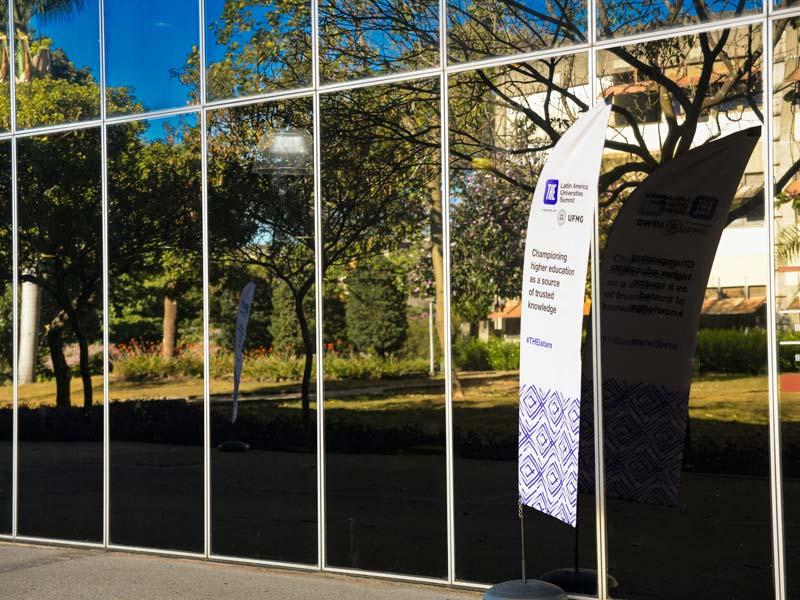Employability has transitioned from being a supplementary element of higher education to a strategic priority for many institutions. Speaking at a session during the 2025 THE Latin America Universities Summit, Matthew Small, president and CEO of Symplicity, highlighted how universities can leverage employability to enhance student outcomes and advance their societal missions and reputation.
“We partner with more than 1,000 universities in over 40 countries, including global leaders such as William and Mary, Georgia Institute of Technology, the University of Florida, Purdue University and Auburn University in the US, as well as highly innovative universities in Latin America,” Small said. “Each of these institutions has unique needs and serves diverse student bodies with distinct challenges. What connects these institutions isn’t their size, ranking or geography – it’s the shared understanding that employability is not a peripheral service but central to their mission and long-term success.”
While no two institutions approach this challenge identically, one clear pattern has emerged: the universities making the most significant progress are those treating employability as a strategic, data-informed and student-centric priority. A driving factor behind this is that students and parents are focusing more intently on the return on investment from higher education programmes.
“Today’s students aren’t just pursuing degrees. They’re actively investing in their future careers,” Small noted. “And it’s not just students – parents, administrators and governments are all pushing this agenda. Just a decade ago, ‘student outcomes’ in higher education often meant retention and grades. Today, it unequivocally means employment outcomes.”
Small discussed the unique opportunities higher education offers in Latin America. “Higher education in Latin America isn’t just an academic pursuit. It’s the single most powerful engine for social mobility and economic transformation available to our societies,” he said. “The question isn’t whether we should invest in employability and career outcomes, but how quickly we can scale our impact?”
A 2025 Unesco report on the role of higher education in advancing employability outlines six evidence-based strategies for transforming career success from a privilege into a universal right. These are immediate measures that universities in Latin America could adopt to improve equity of student outcomes. “Employability can no longer be something that happens only to well-connected or financially privileged students,” Small emphasised. “It must become a systematic commitment every institution makes to every student.”
Despite great effort being made around employment initiatives across Latin America, institutions often face challenges such as fragmentation and limited data infrastructure. “To deliver on the Unesco framework and create truly equitable, data-driven, holistic employability strategies, we need integrated infrastructure that connects every touch point of the student career journey,” Small explained.
Graduate success goes beyond implementing the latest tools or forging industry connections, said Small. It is a human challenge that requires creating conditions where every student can thrive professionally. “Equity must be built in, not merely added on to your institutional services,” he concluded.
Discover how Symplicity partners with universities worldwide to deliver equitable student success.


comment